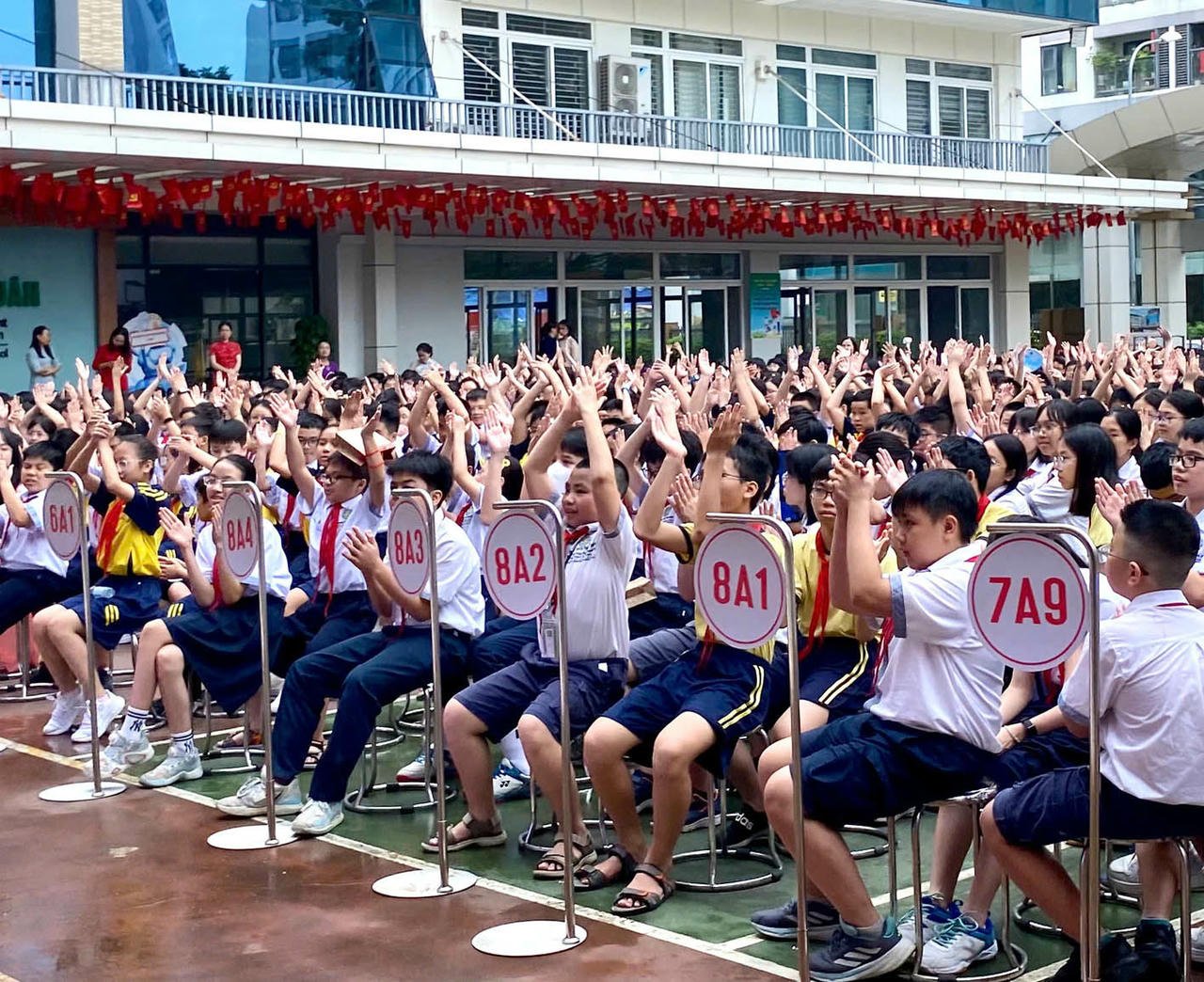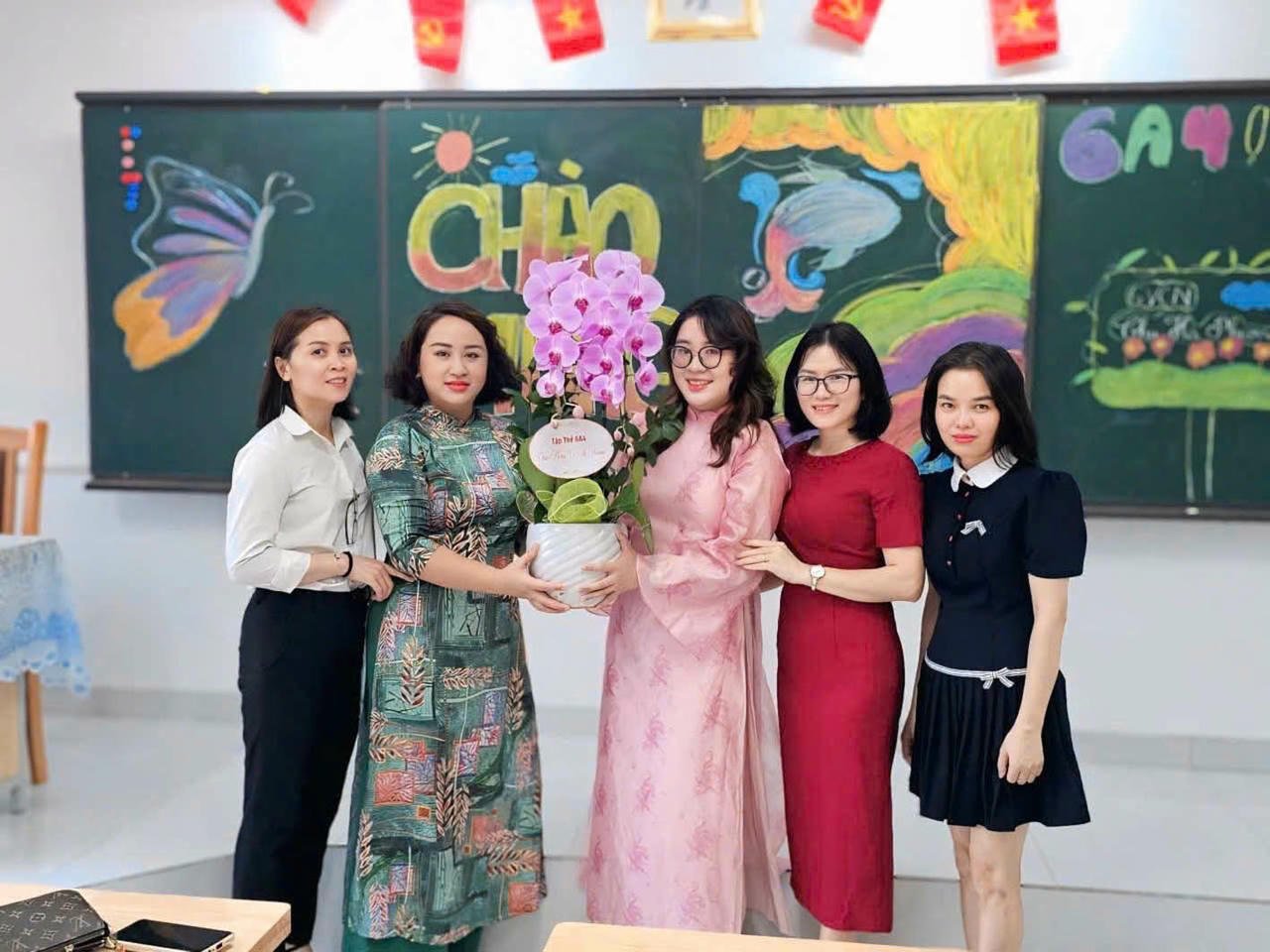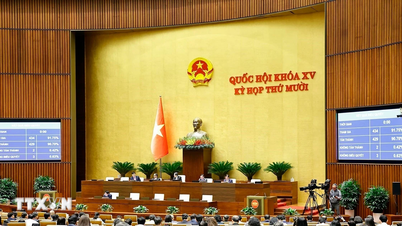Concerns arise when students become targets of cybercriminals.
One Monday morning, instead of the usual flag-raising ceremony and cultural activities, Thanh Xuan Secondary School (Thanh Xuan Ward, Hanoi ) organized a campaign to raise awareness about preventing kidnapping and online scams targeting students.
According to Ms. Phung Quynh Nga, Deputy Principal of Thanh Xuan Secondary School, recent cases of online fraud and kidnapping are no longer distant stories but have become a topical issue directly affecting students. She stated that in the context of rapid technological development, early exposure of students to the internet, smartphones, and social media is inevitable, but it also brings many potential risks. Just a click, a text message, or a seemingly harmless video call can lead to students being lured, psychologically manipulated, or becoming victims of online kidnapping and fraud schemes.
Ms. Nga expressed that a lack of experience and digital skills makes many students easily fall prey to the subtle enticements of malicious individuals. This is a pressing problem in modern society, and has become a constant source of worry for parents, teachers, and the entire education community.
Since the beginning of 2025, thousands of online scams targeting students have occurred, causing many families to lose hundreds of millions or even billions of dong. For example, in September, the police in Loc Ha commune (Ha Tinh province) received a report from NT (16 years old, a 10th-grade student residing in Loc Ha commune) about being scammed out of money through a lottery game. While using her personal social media account, NT saw a Facebook livestream of a "lottery game." Seeing many players, she trusted the scammers and messaged them to inquire about money and asked for their help. After a series of deceptive tricks and enticements, the scammers manipulated her, causing her to hand over all her savings and borrow money from friends to transfer to them. The amount NT was scammed out of was nearly 3 million dong.
According to Master Luu Van Tuan, Director of the Green Educational Psychology Center, online scams are becoming increasingly sophisticated, targeting students who lack experience and skills in identifying risks. Recently, many worrying incidents have occurred, such as individuals impersonating police officers, teachers, or school officials to call or text students, luring them into providing personal information, account passwords, or transferring money via e-wallets. In addition, the spread of fake news, such as "urgent" announcements about exams, grades, tuition fees, or school rule violations, causes many students to panic, share false information, and help spread misinformation.
Master's degree holder Luu Van Tuan pointed out a series of common tactics used by cybercriminals to approach students, and also guided them on how to recognize dangerous signs, such as requesting OTP codes, sending strange links, or claiming to be someone unknown. He also emphasized that when faced with suspicious situations, students need to remain calm, preserve evidence, and immediately report to trusted adults such as grandparents, parents, teachers, or authorities for timely assistance, avoiding unfortunate consequences.
According to Ngo Minh Hieu, a cybersecurity expert and Director of the Anti-Fraud Organization, a secluded lifestyle and dependence on the internet and mobile phones, leading to self-isolation, creates an environment where students fall prey to online traps.
Mr. Hieu stated that, currently, with AI, deepfake technology, and automated tools, cyberattacks are becoming increasingly unpredictable. Perpetrators can impersonate other people's faces, even impersonate police officers... using just a single image in seconds to make online calls and approach students. Hackers can manipulate images of young people online, create sensitive videos for blackmail, or even kidnap them online.
This leads to concerns about "virtual assistants" becoming "study substitutes."
Ms. Chu Ha Phuong (a teacher at Ha Yen Quyet Secondary School, Cau Giay Ward, Hanoi) believes that today's students are very intelligent, quick-witted, and easily grasp and adapt to new technologies. This is an advantage, helping them become a high-quality workforce in the future. However, with the widespread use of AI tools like ChatGPT, Gemini, and Copilot, a complete math problem or a well-written essay can be generated with just a few lines of code, complete with clear citations and persuasive arguments. This creates concern in classrooms, as the amount of knowledge in the world is developing by the hour and minute. Students need to develop self-learning, research, problem-solving, and problem-solving skills from their early school days.

Over-reliance on ChatGPT will cause students to inadvertently miss the "golden period"—the most valuable time for developing independent thinking, analytical skills, and creativity in their studies and work. Instead of independently exploring, reflecting, and experiencing, the overuse of AI tools makes the learning process passive, focusing only on "receiving results" without engaging in a "thought-provoking journey." In the long run, this not only diminishes self-learning skills but also makes it difficult for students to adapt to work and real life, where answers from artificial intelligence are not always readily available.
To help students develop holistically, both mentally and physically, and to enrich their life experiences, many schools now organize activities, themed weeks, and engaging lessons.
Ms. Chu Ha Phuong stated that at Ha Yen Quyet Secondary School, students have participated in many diverse activities aimed at holistic development. From the beginning of the school year, the school organized a week to welcome new 6th-grade students, combining activities such as getting to know friends, visiting classrooms, and participating in group games to help them enter secondary school with confidence and dynamism.
In addition, the school also develops extracurricular activities, such as STEM clubs and engaging outdoor activities. For example, a trip to Ngoc Island (Thanh Thuy, Phu Tho), where students can immerse themselves in a spacious, green environment, enjoy the fresh air of nature, participate in beneficial activities, and freely experience incredibly fun games, helping them to explore, learn, and have fun. Especially, students also get to listen to sacred stories about President Ho Chi Minh and offer incense in a solemn and moving atmosphere.
To encourage a spirit of learning and solidarity, the school organized an exchange with a delegation of teachers and students from other countries, such as Singapore. During the exchange, students and teachers from Ha Yen Quyet Secondary School practiced their English and learned useful and interesting information about the countries, people, and education systems of other nations. Through these activities, students not only learned classroom knowledge but also gained life skills and a sense of community, contributing to spreading a positive image of a modern, safe, and happy learning environment.

Source: https://baophapluat.vn/noi-lo-tu-buc-giang-thoi-ai.html





![[Photo] General Secretary To Lam working with the Central Inspection Committee](https://vphoto.vietnam.vn/thumb/1200x675/vietnam/resource/IMAGE/2026/03/05/1772718314670_a1-bnd-8682-5192-jpg.webp)
![[Photo] Prime Minister Pham Minh Chinh receives the Minister of Emergency Situations of the Russian Federation.](https://vphoto.vietnam.vn/thumb/1200x675/vietnam/resource/IMAGE/2026/03/05/1772712011395_ndo_br_thiet-ke-chua-co-ten-76-png.webp)






































































































Comment (0)